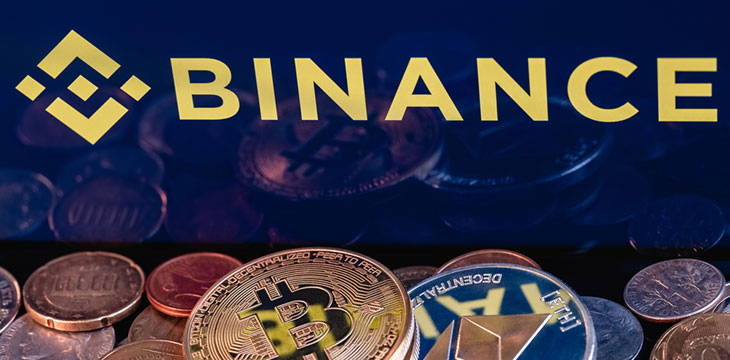|
Getting your Trinity Audio player ready...
|
The latest chapter in the Voyager sale saga saw a federal judge temporarily halt Voyager’s attempt to sell its assets to Binance.US after federal regulators opposed the deal.
On March 27, District Judge Jennifer Rearden of the U.S. District Court for the Southern District of New York granted the government’s emergency application for a pause in the sale of Voyager, pending an appeal launched by the U.S. Department of Justice (DoJ) earlier this month—an appeal which had previously been dismissed by bankruptcy Judge Michael Wiles on March 15.
After Judge Wiles dismissed the DoJ’s application to halt the sale, it filed its emergency appeal on behalf of the government on March 17; Voyager filed papers opposing the appeal on March 20; and then on March 21, the Government followed up with a further reply in support of its motion.
On Monday, Judge Rearden sided with the Government’s position, stating in her ruling:
“Upon consideration of all parties’ written submissions, as well as the conferences and oral argument held in this matter, the Government’s emergency motion is hereby granted.”
Rearden’s decision came the same day the U.S. Commodity Futures Trading Commission (CFTC) sued Binance’s global entity, alleging it “violated core provisions” of the Commodity Exchange Act (CEA) by allowing U.S. customers to illegally trade crypto derivatives products on the platform; cultivating U.S. business while failing to register with authorities.
Binance.US is the registered U.S. entity affiliated with Binance. The former is supposedly a separate entity and allows access to a more limited range of digital assets (95 digital currencies); while the latter offers over 600 coin/tokens but is not registered in the U.S. and not permitted to facilitate trading to U.S. citizens, it’s this entity that being sued by the CFTC.
A prosecution against Binance has been on the cards for a while, suggesting the timing of it is likely no coincidence—in fact CoinGeek predicted last week, after Judge Wiles initially dismissed the Government’s appeal against the Voyager sale, that this decision may cause authorities’ to accelerate plans to file indictments against Binance and its founder Changpeng Zhao.
Voyager’s downfall
Voyager Digital filed for Chapter 11 bankruptcy protection in July 2022, in the wake of the Terra/Luna collapse earlier that year. Voyager had lent hundreds of millions of dollars to Three Arrows Capital (3AC), one of Terra’s largest investors. When Terra’s stablecoin collapsed, the domino effect caused Three Arrows Capital (3AC) to go under, which in turn caused Voyager to collapse.
FTX originally agreed to buy Voyager, but in November, found themselves embroiled in their own scandal and subsequent bankruptcy. Binance then came in for the deal, agreeing to buy Voyager’s assets for $1.3 billion in December.
The long bankruptcy back and forth
Despite this small ray of light, the road remained rocky for Voyager after it came to an agreement with Binance.
In January, the U.S. Securities and Exchange Commission (SEC) filed an objection to the acquisition of the bankrupt exchange’s remaining assets, citing concerns as to whether Binance had the funds to consummate the deal.
Then in February, the New York State’s Department of Financial Services (NYDFS) and New York Attorney General Letitia James lodged multiple objections to the proposed billion-dollar deal, including concerns that the sale plan would unfairly discriminate against New York account holders, who won’t be able to reclaim their digital assets for six months while Binance.US gains approval in the state, and allegations that Voyager was unlawfully serving customers in New York state.
Despite objections, Judge Michael Wiles approved the deal on March 17 while the DoJ came in with a last-minute appeal on March 15, but it was dismissed by Judge Wiles, saying the further delay would result in “quite significant and immediate” harm to Voyager’s customers, whose assets have been frozen since Voyager filed for bankruptcy protection last July.
The quashing of this last-minute appeal briefly appeared to be a green light for the sale of Voyager’s assets, but only two days later, the DoJ filed its emergency appeal, and Judge Rearden took a more favorable view of the government’s arguments, and on Monday put a temporary halt to sale.
Judge Rearden said that “an opinion setting forth the reasons for this ruling will issue shortly.” Still, whatever the reasoning, this latest delay in the winding tale of Voyager’s bankruptcy will likely throw the sale into doubt.
At the time of writing, neither the defunct Voyager nor Binance has commented on the ruling.
Follow CoinGeek’s Crypto Crime Cartel series, which delves into the stream of groups—from BitMEX to Binance, Bitcoin.com, Blockstream, ShapeShift, Coinbase, Ripple,
Ethereum, FTX and Tether—who have co-opted the digital asset revolution and turned the industry into a minefield for naïve (and even experienced) players in the market.

 02-21-2026
02-21-2026 




